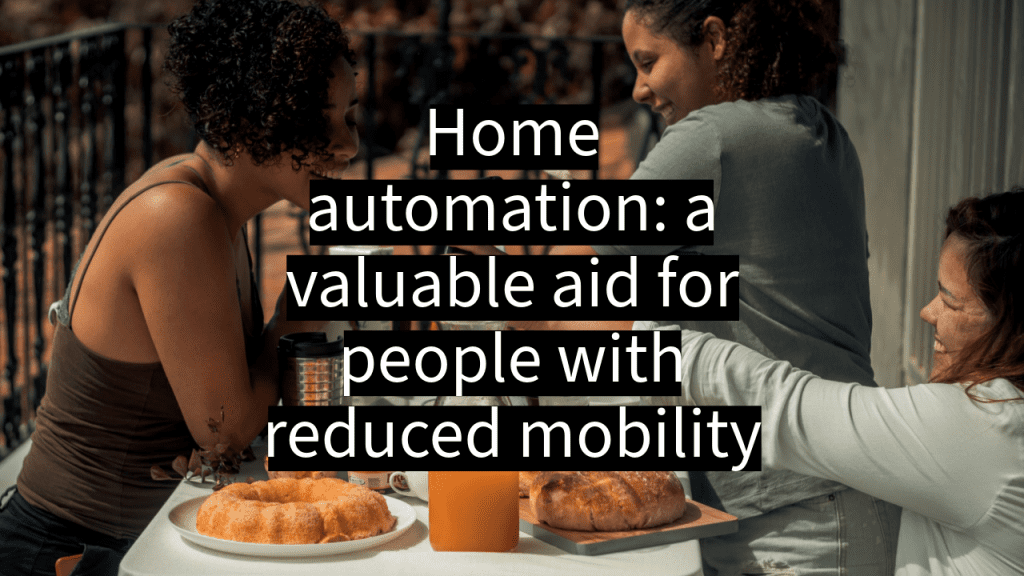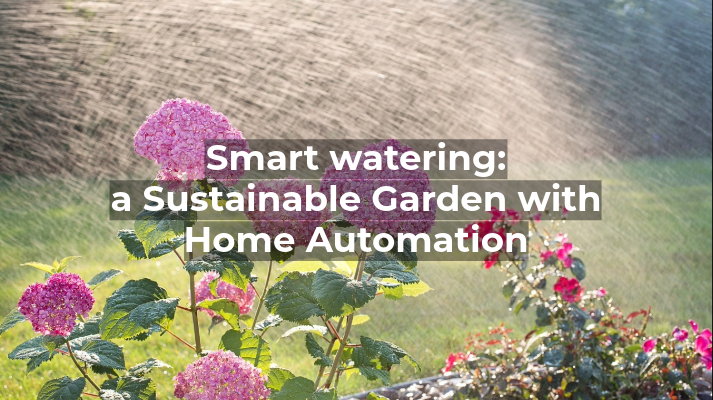Home Automation to Enhance the Quality of Life for People with Disabilities
Today, let’s dive into the fascinating world of home automation and explore how it can become a true ally for individuals with reduced mobility and for the elderly. 🌟
Home automation is a rapidly growing field that aims to automate and integrate various functions of a home, such as lighting, heating, security, and household appliances, to provide a more comfortable, safe, and convenient environment.
For individuals with reduced mobility, home automation can be of great assistance as it allows them to control various aspects of their environment using simplified commands. For example, thanks to home automation, it’s possible to automate the opening and closing of shutters, doors, and windows, which facilitates movement within the home and enables easier access to the outdoors.
The Challenges Faced by People with Reduced Mobility ♿️
For individuals facing mobility challenges, daily tasks that many take for granted can become significant hurdles. Moving around the house, controlling the environment, and accomplishing activities of daily living can be sources of frustration and dependence. But worry not, there’s light at the end of the tunnel! 💡
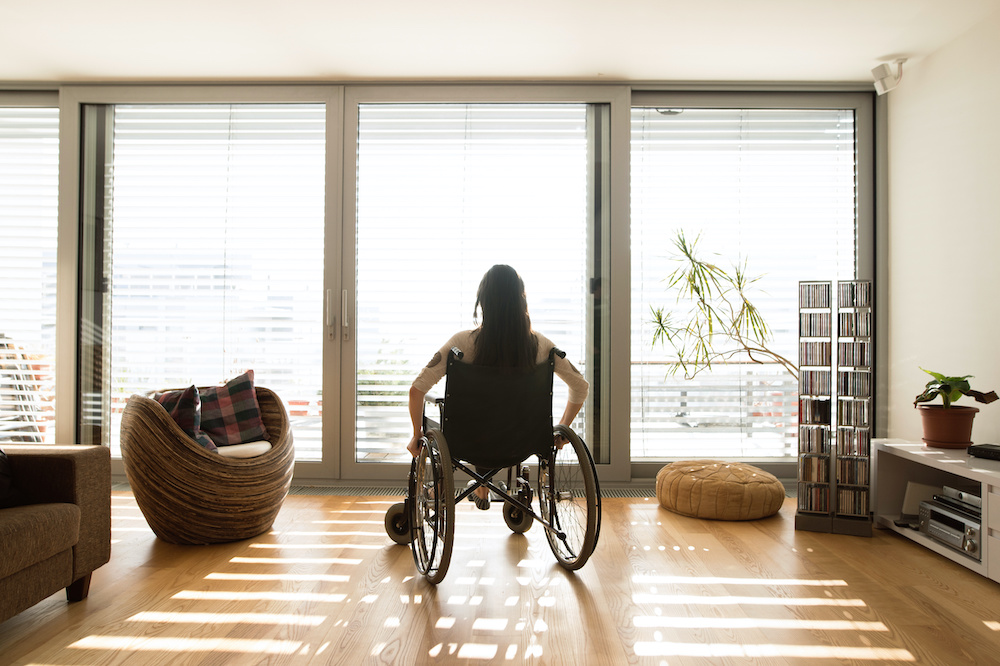
The Promise of Home Automation to Improve the Quality of Life for People with Disabilities
This is where home automation comes into play! Home automation is much more than just a gadget. It’s an innovative solution that promises to revolutionize the lives of individuals with reduced mobility. Imagine a home that anticipates your needs, adapts to your preferences, and offers you an unprecedented level of control. 🏡✨
In the sections to come, we’ll explore how the magic of home automation can transform challenges into opportunities, bringing comfort, autonomy, and independence to individuals with reduced mobility. Ready to embark on this exciting journey? 🚀👇
How Home Automation Can Assist Individuals with Reduced Mobility 🤖🏠
Automating Daily Tasks with a Smart Home Solution 🌟
One of the most impressive aspects of home automation is its power to automate daily tasks that can be particularly challenging for individuals with reduced mobility. Imagine being able to control lights, shutters, and doors with a simple gesture or even by voice command. There’s no longer a need to navigate laboriously in a wheelchair; each action can be orchestrated with incredible simplicity. And what about managing household appliances? From the kettle to the washing machine, everything can be programmed to operate based on your needs. The future is definitely here, and it’s incredibly convenient! 💡🔌
Accessibility and Comfort with a Smart Home Installation 🏡✨
Accessibility and comfort are at the heart of the experience provided by home automation. Smart homes can automatically adjust their environment to match your preferences. From ambient temperatures and lighting tailored to your tastes to optimal seating configurations, everything is designed with you in mind. Just imagine entering a room and instantly feeling that everything is set to your convenience. Moreover, creating personalized environments becomes a breeze. Whether you need a relaxing ambiance for the evening or bright lighting for an activity, your home adapts to every moment of your day. 🛋️🌙
Home automation does more than simplify things; it transforms them to offer a more autonomous and enjoyable life for individuals with reduced mobility.
Sécurité et surveillance dans votre maison connectée
Security and surveillance systems are another area where home automation particularly shines for individuals with reduced mobility.
Thanks to home automation, alarm systems become smarter than ever. From motion detectors to door and window sensors, everything can be integrated into a smart network that instantly alerts you in case of suspicious activity. You can monitor your home even when you’re away, offering you invaluable peace of mind. No more constant worry; your home is secure, and you are always connected.
Remote monitoring is a major advantage of home automation. With smart cameras, you can keep an eye on your home in real time from your smartphone or tablet, wherever you are. This can be extremely useful for checking who is at the door, tracking movements in and around your home, and even keeping an eye on family members. More than just a convenience, this surveillance capability can play a crucial role in your safety and well-being, limiting the risk of falls.

Home automation offers a true revolution in terms of security and surveillance, empowering individuals with reduced mobility with the means to stay safe in their own space.
The Tangible Benefits of Home Automation for People with Reduced Mobility 🏡
Strengthened Independence for Individuals with Disabilities
Home automation provides a significant boost to the independence of individuals with reduced mobility. Gone are the days of feeling dependent on others for simple tasks. With home automation, you have the ability to take control of your environment, manage your devices, and govern your living space as you see fit. This enables you to live autonomously, perform your daily activities with ease, and reclaim control over your life.
Quality of Life Improvement 🏠
Imagine a daily life free from the constant stress of household chores. Thanks to home automation, you can significantly lighten the mental load associated with daily tasks. The secure and comfortable environment created by home automation provides you with the peace of mind needed to focus on what really matters. You can adjust lighting, temperature, and other elements for optimal comfort, all without any effort. Home automation frees up time and energy so you can fully enjoy life.
Social Inclusion 📞🤝
Home automation also promotes social inclusion by facilitating communication with the outside world. From smart intercom systems to voice commands for calling loved ones, you have the means to stay connected with your family and friends, and actively participate in social life. Home automation eliminates barriers that might otherwise prevent you from staying in touch and being involved in the community.
Thanks to these technological advancements, geographical distance is no longer an obstacle to sharing moments with your loved ones. You can organize video calls with a simple gesture, keep up with your friends’ activities on social media, and even remotely control certain aspects of your home to receive your guests with peace of mind. Social inclusion becomes a reality accessible to all, turning home automation into a powerful tool for strengthening bonds and staying connected with the world around you.

Home automation opens up new horizons for people with reduced mobility by offering enhanced independence, improved quality of life, and unparalleled social inclusion.
Examples of Home Automation Solutions Suited for a Person with Disabilities
Voice Commands and Remote Controls 🗣️📲
Just imagine issuing verbal commands for your home to respond to your needs. With home automation, voice commands become a reality. You can dictate commands to adjust lighting, temperature, roller shutters, or even ask the voice assistant to read you the day’s news. Moreover, thanks to user-friendly mobile applications, you have total control of your environment, wherever you are.
Sensors and Smart Automation 🕵️♂️💡
The magic of home automation lies in smart sensors. Motion and presence sensors integrated into your home can detect your movements and automatically adjust environmental elements according to your needs. Imagine entering a room and seeing the lights turn on automatically, or leaving and watching the doors lock themselves. Tasks are automated for you, making every moment more convenient.
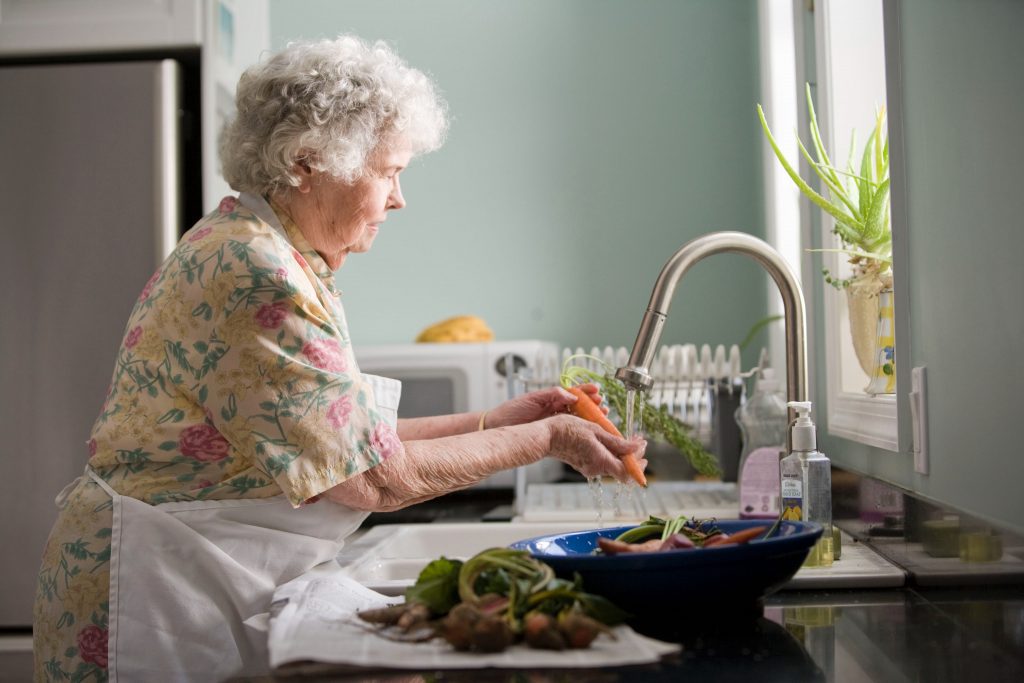
Adapted Interfaces 🖥️🖱️
User-friendly and customizable user interfaces are the key to adapted home automation. You can personalize controls and interfaces according to your preferences and specific needs. From intuitive touch devices to simplified interfaces, everything is designed to offer you complete control effortlessly. Specific assistive devices, like ergonomic switches and adapted touch screens, are there to ensure an optimal experience.
Discover how these adapted home automation solutions can transform your daily life by making every action easier and more convenient. Home automation is here to offer you a more comfortable and autonomous life! 🏡🤖
The Challenges and Limitations of Home Automation for People with Reduced Mobility 🛑🤔
Technological Complexity 🧐💻
Despite the undeniable benefits, technological complexity can pose a challenge for people with reduced mobility. Setting up a home automation system requires a certain understanding of the underlying technologies. While interfaces are designed to be user-friendly, some users may find it intimidating to learn how to use them effectively. This is why technical assistance might be necessary, which can sometimes be discouraging.
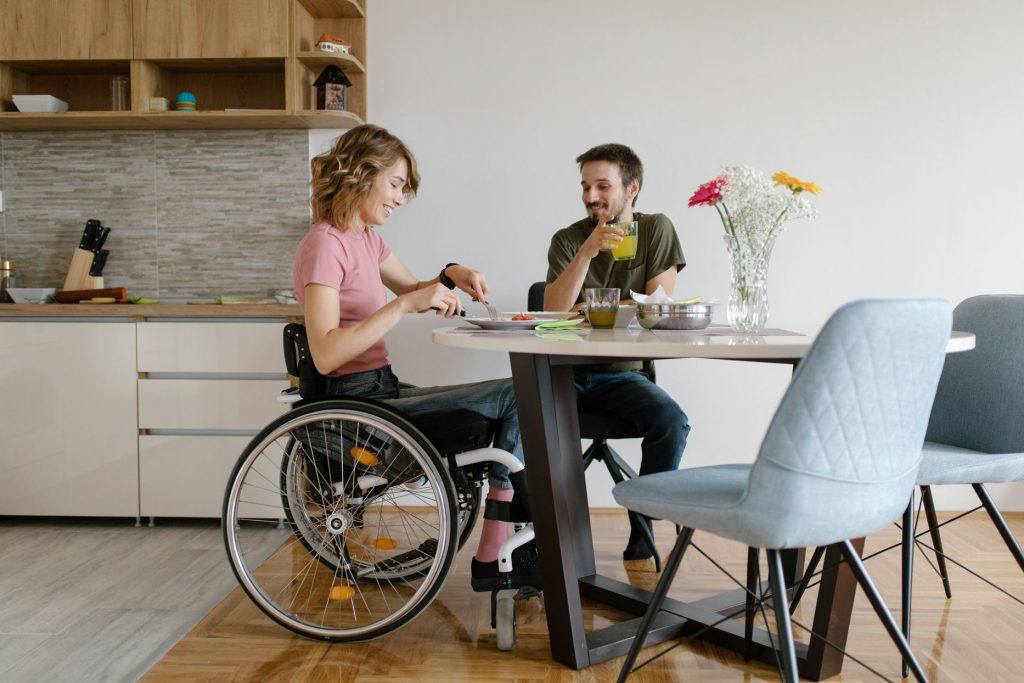
The Financial Impact of a Home Automation System 💰
Beyond the challenges and limitations, it’s important to note that home automation can also have a positive financial impact for people with reduced mobility.
Modern home automation systems are designed to maximize energy efficiency, which can translate into substantial savings on energy bills. Smart sensors automatically adjust lighting and air conditioning based on actual needs, thus reducing waste and optimizing energy consumption.
For individuals with reduced mobility who may have additional medical expenses, these energy savings can translate into significant financial savings in the long term. By reducing electricity and heating consumption, home automation not only helps preserve the environment but also eases the pressure on household budgets.
In sum, despite the challenges, the benefits of home automation for people with reduced mobility are undeniable. From improving quality of life to increasing independence, and through energy and money savings, home automation opens promising horizons for a more accessible and comfortable future for everyone. 🏠💚💸

The Future of Inclusive Home Automation 🚀
As we look toward the future of home automation, it’s clear that exciting technological advancements are on the horizon. Engineers and designers are tirelessly working to make home automation technology even more adaptable and accessible to individuals with reduced mobility. More advanced sensors, intuitive interfaces, and innovative control systems are being developed to meet the specific needs of this often underrepresented group..
The evolution of home automation isn’t just about the technology itself but also about how it can transform our society. By making homes and living spaces more accessible, home automation is contributing to creating a more inclusive society where everyone has the opportunity to fully participate. This technology opens doors to educational, employment, and social participation opportunities for people with reduced mobility.
As we envision an increasingly connected future, home automation will play a crucial role in achieving this vision of inclusion. The possibilities are endless, and the technology continues to improve at a rapid pace. Together, we can shape a future where home automation technology not only makes homes smarter but also makes our society smarter, more inclusive, and caring for everyone. 🏡🌍🌟
